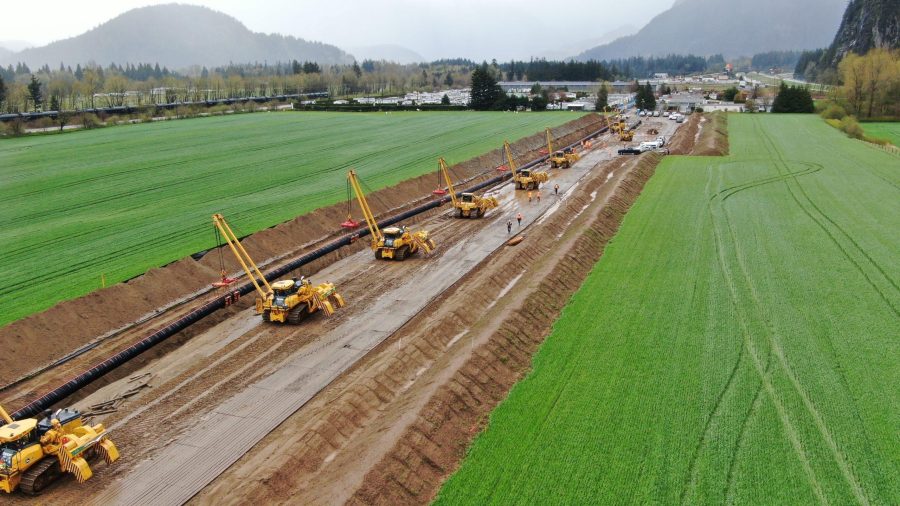The Transmountain Mountain Pipeline expansion project (TMEP) was completed on May 01, 2024. Its startup the following month ended an eleven-year saga of tectonic federal energy policy initiatives, climate change requirements, federal regulatory restructuring, and indigenous reconciliation. That it was finished at all is a triumph, but there was muted celebration.
The original proponent for TMEP was Kinder Morgan (KM), who filed its application with the federal energy regulator in 2013. The expansion would be constructed in the existing right of way of the existing pipeline and increase capacity from 300,000 barrels of oil and refined products to 890,000 barrels of oil per day. This included expansion of the existing dock and loading facilities. Protests began virtually the next day. The cost estimate at that time was $7.4 billion for the 1,150 km pipeline and related facilities. The federal regulator and the federal government approved the project in 2016.
Between 2016 and 2018, the intensity of the protests against TMEP and a new government formed in British Columbia that vowed it would use any means possible to make sure TMX would not be built created significant hurdles. KM warned that the protest’s impact and B.C.’s regulatory and legal challenges were creating significant uncertainty, and the project would be delayed at least a year, stopping all non-essential spending. Ultimately KM decided it would not continue with the project because of the increased execution risk and cost to complete the project that the legal and regulatory challenges, and increasing protests, posed.
The project’s shelving by KM led to the federal government acquiring all the Kinder Morgan assets, including TM for $4.7 billion in 2018. Construction then began in 2019. The execution risks remained the same with the legal and regulatory challenges. They were compounded by a legal challenge to the substance of the federal government’s consultation with indigenous people, which was their constitutional duty. The courts agreed that the federal government had not met its constitutional duty to consult and ordered that it be redone. This led to further delays and in 2020 the cost estimate increased to $12.6 billion, then increased again to $21.4 billion in 2022. Ultimately, the federal regulator imposed 157 conditions on TMEP that it had to meet before it could operate.
COVID, extensive flooding and regulatory delays led to a further cost increase up to $30.9 billion in 2023. The final updated cost increased to $34 billion in 2024 due to labour costs, inflation, and materials delays.
The foregoing “Coles notes” version of events sets out the challenges endured by TMX as of Thursday, May 23, 2024. It also highlights that delays in a major project like TMEP have a massive impact on costs. But what gets lost in all this is that in 2013 KM, a public company, made a commercial decision to proceed with the project. There was and still is a huge market pull for the pipeline and the incremental oil volumes. There is huge economic and strategic value for Canada that will benefit all sectors of the economy and indigenous communities, who will most likely end with significant pipeline ownership.
Market access for Canada’s oil production in the Pacific markets will change the oil trading dynamics and value for Canadian production. Canada has the third largest oil reserves in the world. Canada is among the best in its class for environmental, safety, social and governance of its energy production. Canada is also among the best in pipeline construction and safety. So, who best to execute a monumental project like TMX?
We need to reflect and admire the skill, diligence, and perseverance of everyone involved with bringing to fruition TMX as a world class, state of the art major piece of energy infrastructure.
Yes, TMX is a success but the process through which it had to persevere was a failure and we should reflect and learn from it. In the end, despite the final cost, Canada will reap the economic benefits from TMX for decades because the world needs oil and Canada has lots of it.
Chris Bloomer is a board member of FCPP and the former president and CEO of the Canadian Energy Pipeline Association. He has held senior executive positions in the energy industry in Canada and internationally.
Related Items:
Watch: Frontier Live on X – New Pipeline Gives Canada Hope – with Chris Bloomer (60 minutes) May 9, 2024



